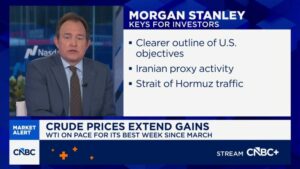This article is reprinted by permission from NextAvenue.org.
Would your loved ones have necessary access to your bank accounts after you die to help carry out your last wishes and handle arrangements? It’s quite likely they won’t unless you take a few essential steps now.
“If you have a bank account in a single person’s name, it can take time to get access to,” says Chester Spatt, professor of finance at Carnegie Mellon University’s Tepper School of Business in Pittsburgh.
To avoid that problem, you can designate a beneficiary on your bank accounts such as CDs, checking or money markets through what are known as Payable on Death Accounts (POD), sometimes called Transfer on Death accounts or Totten accounts.
Transferring assets easily
Such accounts don’t go through probate (the legal process for transferring your assets to your heirs, based on the law in the state where you lived). They’re also a way to give your heirs quick access to funds without creating a living trust, an estate planning tool which also avoids probate but is more complicated to create.
“These are an effective means of transferring assets without a lot of hiccups,” explains Randy Fox, a Chicago-based certified financial planner with Two Hawks Consulting and a specialist in philanthropic estate planning.
When opening a bank account or amending an existing one, you just ask the bank to give you the form to name someone (or more than one person) as the “payable on death” beneficiary. “We think of beneficiaries [when it comes to] retirement accounts or life insurance, but payable on death would be the same thing,” says Spatt.
A withdrawal from a POD account still takes time, though, since the beneficiary must show the bank a death certificate as well as identification.
“If you have one child, a transfer on death to that child is simple,” says Michele Feinstein, an attorney and adjunct professor of law at Western New England University School of Law in Springfield, Mass. Or if you have two or three adult kids, Feinstein says, you could name them all.
“But,” she adds, “Society is not that simple these days, when you have multiple marriages, kids from different relationships.”
Joint accounts advice
Chanel Reynolds suggests an alternative strategy. Reynolds admonished herself after her husband Jose Hernando died in 2009 in a bicycle accident and they hadn’t gotten around to signing their wills, which were therefore invalid. Her advice to give your loved ones access to your bank account after you’re gone: “You can set up a separate bank account that has co-owner status.”
Jointly held accounts or accounts with co-owners also bypass probate and are mostly straightforward when held by married couples. But, Feinstein says, they “can lead to a lot of unintended consequences.” If you have a joint account and the co-owner has creditors, she notes, “they can wipe out your money.”
And though nobody wants to think about it, Fox laid out another dire scenario: If you make your heir a joint owner on your account, “that person can take the money the day after you put them there.”
If you have no will and your bank accounts have neither payable on death designations nor co-owners, the state decides what to do with them. Also, nobody will then be able to get access to the money until your estate goes through probate.
Also read: My father left part of his IRA to my brother, but my brother died before inheriting. Now what?
Whichever strategy you do want to use, be sure your bank has a copy of the POD or joint-account forms and the person or people named know that they are on them.
Having important papers like these all over the place can lead to chaos for survivors, says Barbara Bates Sedoric, a former estates and trusts paralegal in Rye, N.H. She saw this repeatedly when her firm sent her to the homes of widows and widowers after the death of their spouses.
How to help your loved ones
“I would spend days sifting through desk drawers and going through basements and attics searching for important documents and information,” says Sedoric, who created The LastingMatters Organizer ($20 as a downloadable ebook; $29 for the paperback version) which lets you convey your wishes and keep track of your documents.
Read: What to do if you’re the executor of a loved one’s estate — starting with when to pay the taxes
You’ll also need to remember to update your documents, says Kimberly Foss, president and founder of Empyrion Wealth Management in Roseville, Calif.
“Everyone is different, however on average, every three to five years is recommended,” she says. “A little attention to these details now can save immeasurable stress and heartache in the future.”
Ronni Gordon is a South Hadley, Mass.-based freelance writer and editor and a former newspaper reporter. She has written for the New York Times, The Philadelphia Inquirer, the alumni quarterlies of Smith and Vassar and elsewhere.
This article is reprinted by permission from NextAvenue.org, © 2021 Twin Cities Public Television, Inc. All rights reserved.
More from Next Avenue:
This post was originally published on Market Watch






